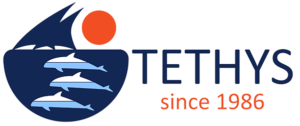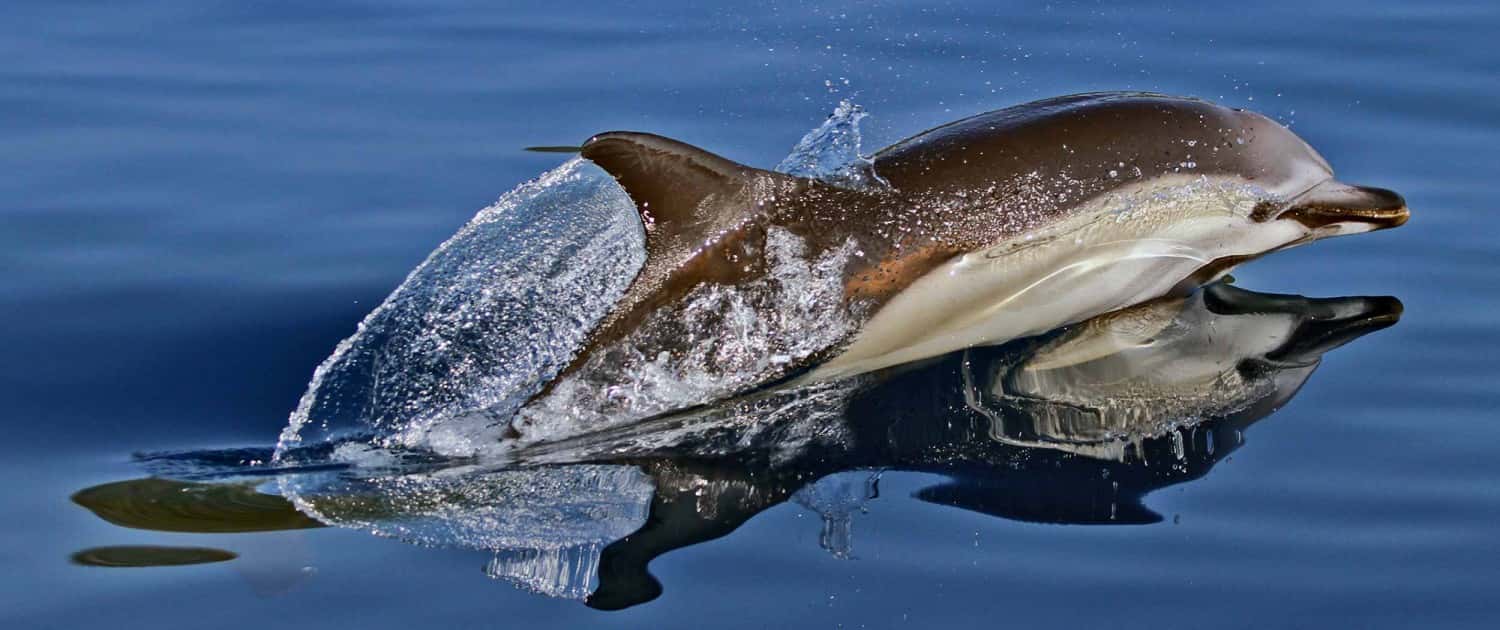Short-beaked common dolphins have become in recent decades the rarest and most endangered cetaceans in the Mediterranean. In what in retrospect looks like a mixture of luck (for the scientific opportunity) and gloomy feelings (out of concern for the animals’ survival), Tethys started in 1991 a project called the Ionian Dolphin Project (IDP) in Western Greece, which initially focused in large part on the ecology and behaviour of short-beaked common dolphins (Piroddi et al. 2011, Bearzi et al. 2008, 2010) that were, at the time, quite abundant in the area. The IDP was conducted first from a research vessel (1991-1994), then based in Ithaca (1995) and in the island of Kalamos (1996-2008) and finally in Vonitsa (2006 – present).
In subsequent years, the study became a documentation of the common dolphins’ dramatic decline, from approximately 150 to 15 animals between 1995 and 2014. Current research indicates that the animals are roaming across a much wider area, moving into their former “wonderland” only occasionally – and hence the drop in sighting rate. Decline of common dolphins in the study are was convincingly linked to the collapse of sardines, the dolphins’ main prey, due to overfishing.
Literature
Piroddi C., Bearzi G., Gonzalvo J., Christensen V. 2011. From common to rare: the case of the Mediterranean common dolphin. Biological Conservation doi:10.1016/j.biocon.2011.07.003
Bearzi G., Agazzi S., Gonzalvo J., Bonizzoni S., Costa M., Petroselli A. 2010. Biomass removal by dolphins and fisheries in a Mediterranean Sea coastal area: do dolphins have an ecological impact on fisheries? Aquatic Conservation: Marine and Freshwater Ecosystems 11 p. DOI: 10.1002/aqc.1123
Bearzi G., Agazzi S., Gonzalvo J., Costa M., Bonizzoni S., Politi E., Piroddi C., Reeves R.R. 2008. Overfishing and the disappearance of short-beaked common dolphins from western Greece. Endangered Species Research 5:1-12. doi: 10.3354/esr00103


